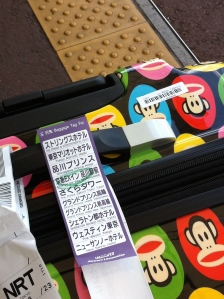“Moshi moshi, Japan?”, held in Geneva, 13 February 2015
Serge, who worked as a recruiter of the Japanese in Tokyo for two years, was the theme setter this time. We learned interesting insights on Japanese candidates and discussed their work mind-set.

Key words:
- Foreign companies want to hire the Japanese, as the Westners are too aggressive for the Japanese culture.
- The Japanese are very timid in speaking English. A non-Japanese recruiter must speak Japanese.
- Three major challenges; 1) to convince a candidate to meet me for the first time, 2) fear of change, and 3) strong loyalty to the present company, even if he wants to change it.
- “It is almost a babysitting” — Must accompany the candidate from A to Z; from listening to his fear of departure, his partner’s opinions, through to how to explain his departure to his boss.
- Women candidates were more autonomous then men and less fearful.
- “Responsibility ” for the Japanese: A killer word of his boss, “Do you leave your responsibility?”. The sense of “responsibility by the Japanese is much stronger than Europeans’. It’s a life commitment. Some candidates change their minds at the last moment, due to the sense of loyalty to the present company coupled with the sense of “responsibility”.
- Japanese employers are much more submissive to their employers than Europeans.
- A recruiter must establish the confidence with a candidate first. Empathy is important. Drink after works.
Thank you very much for all the people who participated in the meeting.
Forthcoming meetings —
Friday 13 March, Japanese market for innovative start-ups
Friday 17 April, Uchi and Soto, the key concepts of the Japanese relationship building
Friday 26 June, Negotiations with Japanese companies (To be confirmed)
Participants: Anyone interested in business with Japan.
Tme: From 18h00 to 19h15
Place: Starbucks, Rive, Geneva central area
Languages: French and English
Organisation fee: CHF 10.-
Registration: By e-mail or phone call to Yoshiko Kurisaki, Europe-Japan Dynamics
Yoshiko.kurisaki@gmail.com, Tel. 076 411 6076










